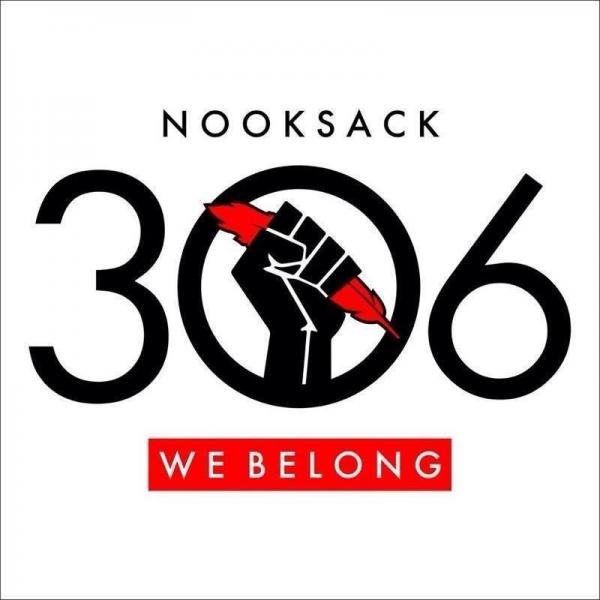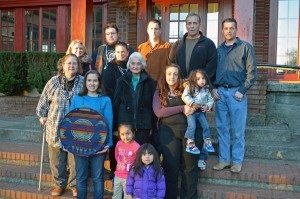Article By:
Dennis J. Whittlesey
Patrick Sullivan
Dickinson Wright PLLC
Sunday, July 7, 2013
Over the past several years, there have been a series of publicized tribal enrollment revocations of enrolled members – including former tribal leaders – and their entire families. While this phenomenon was extremely rare in the past, it is becoming increasingly and disturbingly common.
Many in Indian Country openly trace this activity from the date on which the Indian Gaming Regulatory Act became law in 1988 and tribes too often spending large amounts of their casino revenues in per capita payments to tribal members. In some cases, as tribal populations grew, revenue distributions were accordingly reduced to continue payments to all members. In other cases, the economic downturn that dates back to 2007-08 led to reduced casino revenues and, in turn, reduced individual payments. Still, many have linked dollar reductions in per capita payments to the increase in expelling members.
These facts are well reported and discussed below in some detail. The casual reader will ask how this could be possible, or even legal. Various legal challenges to disenrollments have been unsuccessful, whether they directly challenge the tribes themselves or seek to compel the Bureau of Indian Affairs (“BIA”) to intervene.
Tribal Challenges usually are made in the face of tribal sovereign immunity and are routinely dismissed. While the federal Indian Civil Rights Act of 1968 ostensibly offers legal protections to the victims of enrollment revocations, the reality is that the law is toothless and is not the vehicle through which individual Indians have gained much of anything in the way of rights protection.
BIA Challenges are the alternative, and they involve asking the BIA to intervene to protect the rights of those being banished from their tribal membership, but that agency officially takes the position that the issue of tribal membership is purely a tribal matter and not something in which the federal government will – or even should – become involved.
It is worth noting that the BIA has interceded in enrollment disputes in some unusual cases, the most noteworthy of which is probably that of the Buena Vista Rancheria of Me-Wuk Indians of Amador County, California. The Buena Vista is a recognized tribe that until a few years ago consisted of one adult named Donnamarie Potts. For reasons that are not altogether clear, the BIA examined Ms. Potts’s status as a descendant to the single Indian family formerly residing on the Buena Vista Rancheria and concluded that she has no ancestral tie to the land and, accordingly, was not a lawful member of the recognized Rancheria tribe. Indeed, the BIA concluded that a second adult named Rhonda Morningstar Pope was the sole adult descendant of the resident Indian family and thus the only person entitled to lawful tribal membership in the Rancheria tribe. As a result of that BIA administrative action, Potts was removed and Pope’s family has subsequently constituted the entire tribal membership.
It is also worth noting that the Rancheria tribe has been attempting to develop a casino on the former Rancheria lands for some 10 years but without success as of this date.
Possible Connections Between Tribal Casino Revenues and Membership Revocations
While there are a number of tribes that have disenrolled members, these writers are not aware of any non-gaming tribes that have done so. Disenrollments are reality, but an established connection between reduced casino revenue distributions and disenrollments is somewhat hypothetical. Nonetheless, examining the facts is enlightening.
For the purposes of this article, it is useful to examine the three tribes currently embroiled in “enrollment reductions” that have received the greatest attention. They are (1) the Pala Band of Mission Indians of California, (2) the Picayune Rancheria of Chukchansi Indians of California, and (3) the Nooksack Tribe of Washington. They all have operated tribal casinos for a number of years. They all have been making per capita payments to tribal members. They all have disenrolled hundreds of members over the past several years. And they all apparently began disenrolling members shortly after experiencing downturns in casino cash flow that finance the members’ distributions.
The question is whether there is a cause-and-effect relationship between revenue declines and revocations of membership. The known facts speak for themselves, as does the high level of acrimony now infecting each tribe. However, in each case, the tribes are relying on conclusions as to enrollment entitlement that the BIA has the expertise and experience to determine, but declines to do so. The professional historians and genealogists at the Department of the Interior could resolve the disputes with finality, just as they did at the Buena Vista Rancheria. Thus far, they have elected to do nothing, leaving tribes in chaos and disenrolled members in distress.
Pala Band of Mission Indians
The Pala Indian Reservation is in Southern California, and it houses the Pala Casino which opened in 2001. The casino has been immensely successful, to the point that each tribal member currently receives about $150,000 in per capita payments annually from gaming revenues, as well as housing subsidies, health care, and educational benefits. When the casino’s revenues dropped in 2012, the Tribe’s per capita payments dropped by $500 per month, and the membership grew disenchanted with the decline in each member’s income. The drop in revenue resulted in financial pressure on members who relied on the payments, with the result that a long-simmering membership dispute flared into open hostility and ultimately a massive disenrollment revoking the membership of one-sixth of the Tribe’s population.
The Tribe’s membership rules require at least 1/16 Pala ancestry. Such “blood quantum” membership rules necessarily lead to an evershrinking tribal membership as members frequently marry outside the tribe. The dispute centered on a single woman named Margarita Britten, who is an ancestor of all of the disenrolled members. The Pala Executive Committee determined on its own that Britten’s father was white and not Pala, meaning that all members tracing their Pala ancestry solely to Britten as a great-great-grandparent went from 1/16 to 1/32 Pala blood and no longer qualified for membership. With that decision, more than 160 Pala members were disenrolled, an action that cut off per capita payments, as well as access to health care and all other tribal benefits. Tensions continue to run high on the reservation, with the disenrolled claiming the decision was made solely to prop up per capita payments, while members not affected respond that the disenrollment was an overdue resolution of a preexisting problem.
As for appeals, the Pala leadership took care of that by terminating what might have been a venue for the ousted members to seek judicial relief. In California, tribes may voluntarily settle disputes in the Intertribal Court of Southern California, a tribal “circuit court” providing a neutral forum for appeals of tribal decisions. The Pala Executive Committee voted to withdraw from that court before enacting the disenrollments, so the decision was never subject to review in that court.
The Pala enrollment case was closed before it even was ripe for hearing in that court.
Picayune Rancheria of Chukchansi Indians
In Northern California’s Madera County, the Chukchansi Indians operate Chukchansi Gold Resort and Casino, a popular and profitable operation conveniently located on a major gateway route to Yosemite National Park. While the Chukchansi per capita payments are small, they are supplemented by tribal payments covering utility and food bills, as well as academic tuition.
Chukchansi has reportedly disenrolled at least 400 members in the past five years, reducing the total membership to less than 1,000. The acrimony over the financial situation has grown so toxic that three separate factions are struggling for control of the tribe after a disputed election and continuing disenrollments.
Last year, then Tribal Council Chairman Reggie Lewis and his supporters voted to disenroll dozens of tribe members. Subsequently, Lewis lost his reelection to Morris Reid in December 2012, but he contested the results on the basis that Reid was ineligible to run. Later that same month, in a chaotic tribal council meeting, Lewis refused to seat the new members, announced that he would remain Chairman until a new election was held, and changed the locks on the tribal government offices. In February, a “tribal referendum” elected Council member Nancy Ayala as Chair and removed Lewis from the Council. Supporters of Reid broke into the tribal offices and refused to leave. Lewis’s supporters responded by cutting power to the building and throwing a smoldering log and bear spray inside to forcibly eject them. The Madera County Sheriff observed the activity but did not act, citing a lack of jurisdiction. On the following day, the scene erupted into a violent melee, prompting the Sheriff to intervene along with more than 100 officers from various law enforcement agencies.
Since then, the Tribe has remained in turmoil. In March, the casino’s bank froze the Tribe’s gaming revenue funds due to an inability to determine rightful control over the account, and in the process halted bond payments and put the Tribe in danger of default on its $300 million obligation to lenders. In May, the BIA rejected grant proposals filed by Reid on the basis that he was not a rightful representative of the Chukchansi Tribal Council. An April tribal referendum reinstated Lewis and removed Ayala. However, in June, the BIA administratively recognized Ayala as Chairperson and Lewis as Vice Chairman, although the two continued to wage their very public dispute. Ayala sought an injunction in federal court to cut off Lewis’s access to the bank account and force the bank to continue to pay bondholders, but the federal judge did not intervene, citing a lack of jurisdiction over the matter. It remains to be seen how the painful dispute will end.
In the latest development, a Madera County Judge cited a specific tribal waiver of sovereign immunity and ordered the County Sheriff to enter the Chukchansi casino and physically remove cash to pay a former casino manager owed $725,000 under a settlement of a suit resulting from his termination before his contract expired. Ayala’s faction has vowed to fight the “till tap,” and no per capita payments are currently being distributed.
Nooksack Indian Tribe
In Washington State, the 2,000-member Nooksack Indian Tribe is near the Canadian border, almost 100 miles north of Seattle. In February, six of the eight members of the Tribal Council, including the Chairman, voted to commence disenrollment proceedings against 306 Nooksack members, including the two tribal council members who did not vote in favor of the action.
The Nooksack disenrollees are descendants of a woman named Annie George. Tribal membership rules require that members either (1) trace ancestry to those appearing on a 1942 tribal census, or those who received allotments of tribal land, or (2) prove that they possess 1/4 Indian blood and any degree of Nooksack ancestry. George’s name did not appear on either list, and her descendants must go before the Tribal Council and present evidence of their claim. The disenrollees appealed the Tribal Council’s decision to the Nooksack Tribal Court, asking for an injunction to the disenrollment, but the Chief Judge denied the injunction citing the Tribe’s sovereign immunity from suit and deferring to the Tribal Council’s broad authority over membership matters.
Shortly after voting to disenroll the 306 members, the Council voted to initiate an election to amend the Nooksack Constitution to “close a loophole” and remove the second path to Nooksack membership. This change clearly would further obstruct the disenrollees’ claims. After the BIA approved the election, the two disenrolled Tribal Council members sought to enjoin the election in federal court, but the Judge declined to stop the election citing the lack of “applicable law” making it unlawful for the Nooksack Tribe to define its membership by race or ancestry. The Constitutional amendment went to a vote of the entire Nooksack membership, the outcome of which has not been announced as of this date.
© Copyright 2013 Dickinson Wright PLLC
Read more stories of tribal corruption here.









